May 25, 2021
May 25, 2021
Public concerned about risk of unemployment, day to day living costs, and economic growth
by Jayne Smith • News, Working lives
 A large majority of the public are concerned about rising unemployment (82 percent), day to day living costs (80 percent), and low economic growth (77 percent), according to a PwC survey of 2,000 people across the UK. Pandemics and other health crises (84 percent), cyber crime (82 percent), and climate change (81 percent) were other key concerns according to the research, which looks at the UK public’s attitude to risk.
A large majority of the public are concerned about rising unemployment (82 percent), day to day living costs (80 percent), and low economic growth (77 percent), according to a PwC survey of 2,000 people across the UK. Pandemics and other health crises (84 percent), cyber crime (82 percent), and climate change (81 percent) were other key concerns according to the research, which looks at the UK public’s attitude to risk.
More →
May 20, 2021
Remote work is creating inclusive work experiences
May 19, 2021
Single parents in danger of being locked out of work and forced into poverty
by Jayne Smith • News, Wellbeing, Working lives
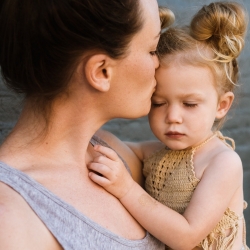 A report published by single parent charity, Gingerbread, and the Institute for Employment Studies highlights how the world of work simply doesn’t work for single parents and warns things are set to get worse before they get better – putting even more single parent families at risk of poverty and creating a two-tier society, with single parents firmly at the bottom. More →
A report published by single parent charity, Gingerbread, and the Institute for Employment Studies highlights how the world of work simply doesn’t work for single parents and warns things are set to get worse before they get better – putting even more single parent families at risk of poverty and creating a two-tier society, with single parents firmly at the bottom. More →
May 14, 2021
One in five employees now more comfortable taking a sick day
by Jayne Smith • News, Wellbeing, Working lives
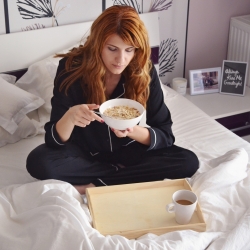
New research from Love Energy Savings claims that one in five people are now more comfortable taking a sick day compared to pre-pandemic. This is in stark contrast to their findings pre-pandemic, when they found that 80 percent of UK employees went to work when sick, with one in 10 people attributing this to employee pressure and one in five to not wanting to let their teammates down. More →
May 13, 2021
Secrets to stress relief and seeking work life balance
by Jayne Smith • News, Working lives
 New research from Microsoft Surface claims that 64 percent of Brits agree that seeking greater balance in their lives has become even more vital through the pandemic and 63 percent are in favour of a three-day weekend to help them achieve a greater work life balance. More →
New research from Microsoft Surface claims that 64 percent of Brits agree that seeking greater balance in their lives has become even more vital through the pandemic and 63 percent are in favour of a three-day weekend to help them achieve a greater work life balance. More →
May 10, 2021
Living life to the full, as we step out of lockdown
by Jayne Smith • News, Wellbeing, Working lives
 New research from comparethemarket.com claims that more than a third (36 percent) of Britons started planning their bucket list during lockdown. More than half (57 percent) claim their motivation for planning the list was due to their attitude that ‘life is too short’, whilst 29 percent say they want to do something for themselves. More →
New research from comparethemarket.com claims that more than a third (36 percent) of Britons started planning their bucket list during lockdown. More than half (57 percent) claim their motivation for planning the list was due to their attitude that ‘life is too short’, whilst 29 percent say they want to do something for themselves. More →
May 7, 2021
Office is the new social hub for a third of workers
by Jayne Smith • News, Working lives
May 6, 2021
Mental health is not a cultural priority for half of organisations
by Jayne Smith • News, Wellbeing, Working lives
 Koa Health, has released a new report titled Wellbeing at Work, exposing the impact of COVID-19 on mental health in businesses across the UK and organisations’ response to the crisis. Social listening research conducted by Pulsar on behalf of Koa Health claims that as COVID took told in the UK, content shared online about people’s declining mental wellbeing increased by 400 percent in the period from the last week of February 2020 to the final week of May 2020. More →
Koa Health, has released a new report titled Wellbeing at Work, exposing the impact of COVID-19 on mental health in businesses across the UK and organisations’ response to the crisis. Social listening research conducted by Pulsar on behalf of Koa Health claims that as COVID took told in the UK, content shared online about people’s declining mental wellbeing increased by 400 percent in the period from the last week of February 2020 to the final week of May 2020. More →
April 30, 2021
Half of workers expect their employer to make Covid vaccine mandatory
by Jayne Smith • News, Wellbeing, Working lives
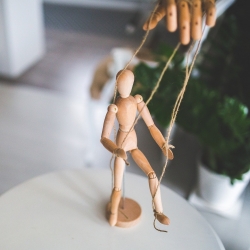 Half of Britain’s workers expect their bosses to demand a vaccine passport before they can return to their workplace claims new research from BrightHR. The study of 5,000 British workers across various sectors claims only 17 percent have had a conversation about their companies’ policy on vaccines, but over a third said they expect it will be mandatory. More →
Half of Britain’s workers expect their bosses to demand a vaccine passport before they can return to their workplace claims new research from BrightHR. The study of 5,000 British workers across various sectors claims only 17 percent have had a conversation about their companies’ policy on vaccines, but over a third said they expect it will be mandatory. More →







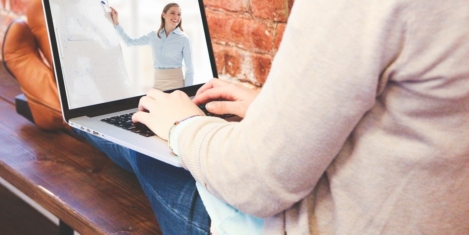
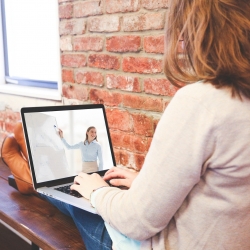 According to new data from
According to new data from 
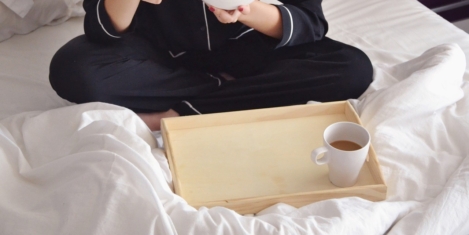



 More than a third (37 percent) of US and UK office workers describe the prospect of going back to the office as the equivalent of going out to meet with friends, according to a new study by
More than a third (37 percent) of US and UK office workers describe the prospect of going back to the office as the equivalent of going out to meet with friends, according to a new study by 

 While working from home has surged in recent months, the use of flexible working hours – such as part-time, flexi-time and compressed hours – has fallen over the course of the Coronavirus pandemic, according to new
While working from home has surged in recent months, the use of flexible working hours – such as part-time, flexi-time and compressed hours – has fallen over the course of the Coronavirus pandemic, according to new 















May 14, 2021
We need to acknowledge our bias if we want to see the world for what it is
by Mark Eltringham • Comment, Wellbeing, Working lives